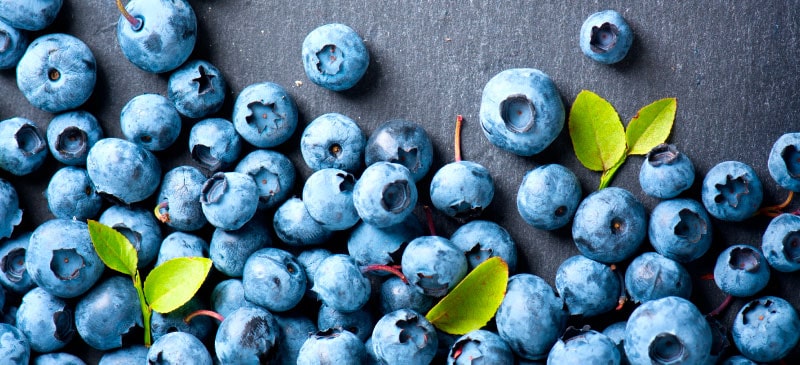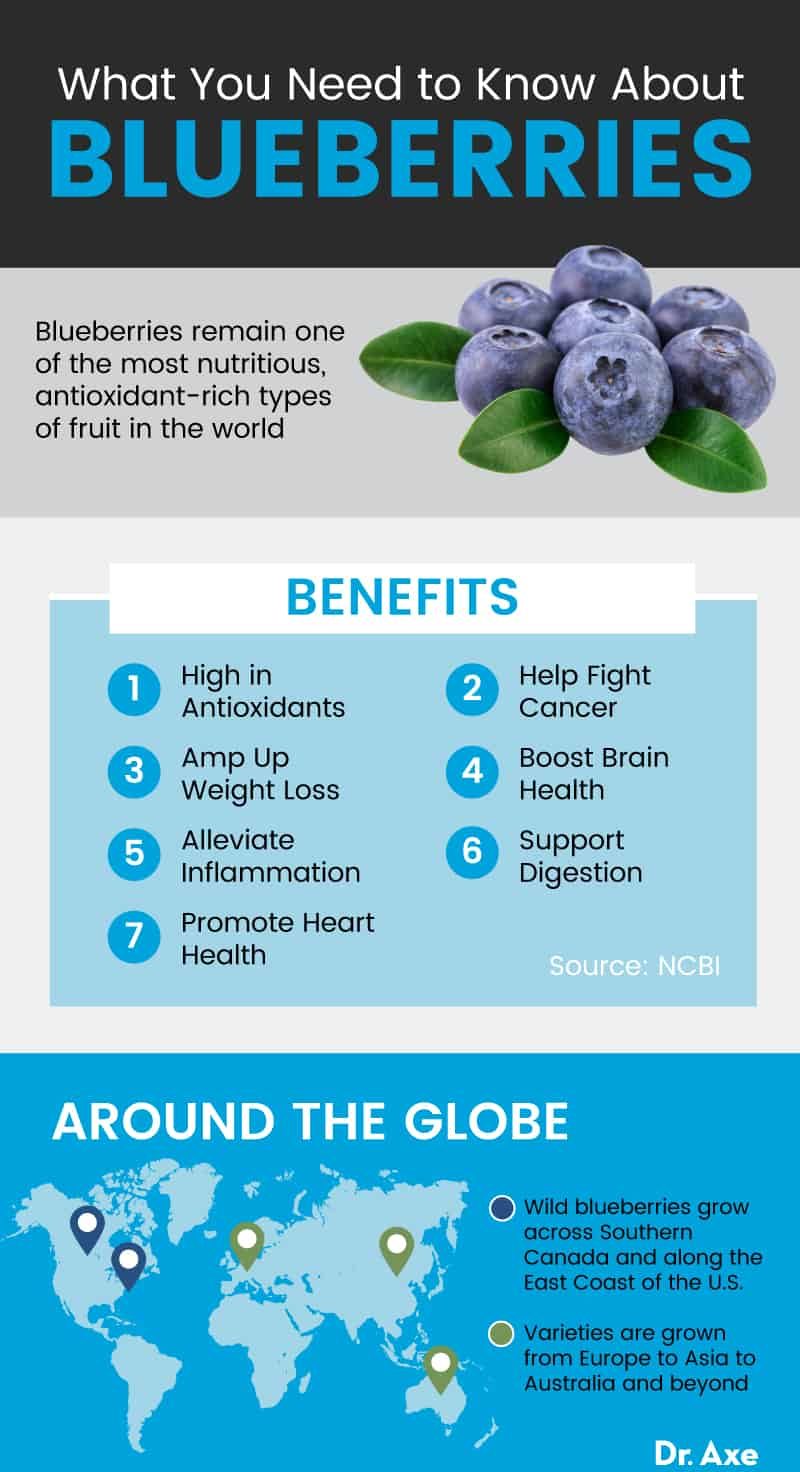This Dr. Axe content is medically reviewed or fact checked to ensure factually accurate information.
With strict editorial sourcing guidelines, we only link to academic research institutions, reputable media sites and, when research is available, medically peer-reviewed studies. Note that the numbers in parentheses (1, 2, etc.) are clickable links to these studies.
The information in our articles is NOT intended to replace a one-on-one relationship with a qualified health care professional and is not intended as medical advice.
This article is based on scientific evidence, written by experts and fact checked by our trained editorial staff. Note that the numbers in parentheses (1, 2, etc.) are clickable links to medically peer-reviewed studies.
Our team includes licensed nutritionists and dietitians, certified health education specialists, as well as certified strength and conditioning specialists, personal trainers and corrective exercise specialists. Our team aims to be not only thorough with its research, but also objective and unbiased.
The information in our articles is NOT intended to replace a one-on-one relationship with a qualified health care professional and is not intended as medical advice.
Health Benefits of Blueberries: Antioxidant-Rich Superfoods
August 14, 2024

This vibrant fruit may be tiny, but each blueberry serving packs a serious punch when it comes to nutrition. Often overlooked and overshadowed by more exotic types of berries, blueberries remain one of the most nutritious, antioxidant-rich types of fruit in the world and have been shown to do everything from enhance brain health to keep your heart strong.
Plus, in addition to the long list of health benefits of blueberries, these fruits are also super sweet, low-calorie and delicious.
Need any more convincing on why you should add this flavorful berry into your diet? Keep reading to learn about the health benefits of blueberries, and find some creative ways to squeeze few servings of this top superfood (and organ-nourishing food) into your day.
Health Benefits of Blueberries
Wondering about the health benefits of blueberries and how they’re beneficial? Here are the top health benefits of blueberries:
1. High in antioxidants
Antioxidants are compounds that fight harmful free radicals and provide a myriad of health benefits. In fact, antioxidants not only prevent cell damage, but also protect against several types of chronic disease, including cancer, heart disease and diabetes.
Blueberries are one of the best sources of antioxidants.
One study in China compared the antioxidant capacity of blueberries, blackberries and strawberries and found that blueberries not only contained the highest total antioxidant capacity, but also contained more of many specific types of antioxidants, including phenols, flavonoids and anthocyanins.
Wild blueberries are especially high in antioxidants. A study in the British Journal of Nutrition, for example, found that supplementing participants with wild blueberry powder increased serum antioxidant status by 8.5 percent after just one hour.
Thanks to the antioxidant properties, blueberries are often used in formulations with lutein to support eye health as well.
Other top antioxidant foods include dark chocolate, goji berries, pecans, clove and cinnamon.
2. Help fight cancer
Research has unearthed some impressive findings on the ability of blueberries to protect against certain types of cancer.
For example, a 2010 test-tube study reported that blueberry extract was able to inhibit the growth and spread of breast cancer cells, making blueberry extracts potential cancer-fighting agents.
Another animal study from the Brown Cancer Center at the University of Louisville treated rats with breast cancer using blueberry powder and found that it reduced tumor volume by 40 percent.
Similarly, a 2007 test-tube study showed that low-bush blueberry juice reduced the growth of several types of cancer, including stomach, prostate, intestine and breast cancer cells.
Although these results are promising, be sure to consume a variety of berries along with plenty of other fruits and vegetables to really optimize the cancer-fighting potential of your diet.
3. Can amp up weight loss
Take a look at the blueberry nutrition profile, and you’ll quickly see why this nutrient-packed berry is great if you’re looking to lose weight. It’s low in calories but provides a whopping 3.6 grams of fiber per cup, fulfilling up to 14 percent of your daily fiber needs with just one serving.
Fiber moves slowly through your digestive tract, promoting satiety and keeping you feeling fuller for longer to aid in weight loss.
Several animal studies have confirmed the beneficial effects of blueberries on weight loss. An animal study published in the journal PLoS One, for instance, found that blueberry juice prevented obesity in mice fed a high-fat diet.
Another animal study conducted by the Cardiovascular Center and the Michigan Integrative Medicine Program showed that blueberry intake was associated with a reduction in belly fat for obese rats.
In addition, a 12-week trial of 54 overweight young adults found that replacing 50 grams of carbs with 50 grams of blueberries daily “produced favorable reductions in body weight (BW), insulin, cholesterol, and other metabolic factors.”
Meanwhile, another study conducted on female twins found “the twin with the higher blueberry intake had a lower fat mass ratio than the co-twin.”
Be sure to combine blueberries with a nutritious, well-rounded diet and plenty of physical activity to promote weight loss even more.

4. Help boost brain health
One of the most impressive health benefits of blueberries is their ability to enhance brain health. There have been many studies suggesting that eating blueberries could improve memory and cognition.
In a 2016 study published in the European Journal of Nutrition, consuming a blueberry drink was found to improve cognitive performance compared to a placebo in 21 children. Another study showed that drinking wild blueberry juice daily for 12 weeks was able to improve the memory of older adults.
Additionally, blueberries are loaded with antioxidants, which can protect the brain from free radical damage and promote healthy brain aging.
In addition to blueberries, other brain foods that can help enhance memory and focus include avocados, beets, leafy green vegetables and walnuts.
5. May alleviate inflammation
Although inflammation is a normal immune response that helps protect your body from illness and injury, chronic inflammation is at the root of most diseases. In fact, inflammation is thought to contribute to a wide range of conditions, including cancer, autoimmune conditions, heart disease and even depression.
Thanks to their high antioxidant content, blueberries have been shown to have a significant anti-inflammatory effect in the body. A 2014 test-tube study even found that the polyphenols found in blueberries helped reduce the activity of several markers of inflammation.
Similarly, an animal study published in the Journal of Pharmacy and Pharmacology also found that blueberry extract was effective in reducing swelling in rat paws.
Celery, broccoli, pineapple, salmon and chia seeds are just a few other anti-inflammatory foods that should be included in a disease-fighting diet.
6. Support digestion
With 3.6 grams of fiber in each cup, including a serving or two of blueberries can help you meet your fiber needs while also promoting regularity and healthy digestion.
When you eat fiber, it travels through the gastrointestinal tract undigested, adding bulk to the stool to keep you regular. In fact, an analysis in the World Journal of Gastroenterology looked at the results of five studies and found that increasing your intake of dietary fiber could help increase stool frequency in those with constipation.
A systematic review of 16 animal studies revealed that “blueberry consumption improved gut health by improving intestinal morphology, reducing gut permeability, suppressing oxidative stress, ameliorating gut inflammation, and modulating the composition and function of gut microbes.”
As for human studies, one published in 2022 found that supplementing with freeze-dried blueberry powder helped modulate toxic bile acid elimination.
Pair your blueberries with plenty of water, physical activity and other high-fiber foods — like fruits, vegetables, legumes, nuts and seeds — to keep your digestive system working efficiently.
7. Promote heart health
There’s no doubt that a healthy heart is a key component of overall health. Your heart is responsible for pumping blood through the body to provide your tissues with the oxygen and nutrients needed to thrive and survive.
Studies show that eating blueberries could help reduce some of the risk factors for heart disease. A 2015 study, for example, found that eating blueberries daily for eight weeks resulted in lower blood pressure and arterial stiffness in 48 women.
Another study in published in the Journal of Nutrition reported that blueberry supplementation led to greater decreases in blood pressure and oxidized LDL cholesterol, two major risk factors for heart disease, compared to a control group.
Of course, the health benefits of blueberries on heart disease are limited unless combined with a balanced diet, a healthy lifestyle and regular exercise.
8. May reduce risk of chronic disease
Blueberries are rich in antioxidants, particularly anthocyanins and polyphenols, which help protect the body against oxidative stress and inflammation.
Epidemiological studies have associated regular, moderate intake of blueberries and anthocyanins with reduced risk of cardiovascular disease, type 2 diabetes and death.
The antioxidants in blueberries may also play a role in preventing cancer, neurodegenerative disorders and other chronic diseases.
9. Help recover from workouts more quickly
Blueberry supplements may help minimize muscle soreness and reduced performance after strenuous exercise.
In a small study involving 10 female athletes, blueberries accelerated muscle recovery following intense leg exercises.
The anti-inflammatory and antioxidant properties of blueberries likely contribute to this effect by reducing local inflammation and oxidative stress in muscle tissue.
10. May boost skin health
Blueberries’ high antioxidant content, particularly vitamin C, may contribute to skin health. Antioxidants help protect skin cells from damage caused by free radicals, potentially slowing signs of aging and promoting a healthier complexion.
11. Help stabilize blood sugar
Research suggests that the bioactive compounds in blueberries, particularly anthocyanins, have beneficial effects on insulin sensitivity and glucose metabolism.
In a study involving 32 obese individuals with insulin resistance, consuming two blueberry smoothies daily led to significant improvements in insulin sensitivity. These anti-diabetic effects have been observed with both fresh and freeze-dried berries.
12. Can help prevent urinary tract infections
Blueberries contain substances similar to those found in cranberries that may help prevent urinary tract infections (UTIs). These compounds, known as anti-adhesives, can prevent bacteria like E. coli from binding to the bladder wall.
However, more research is needed to confirm the effectiveness of blueberries specifically for UTI prevention.
13. Support bone health
Blueberries contain vitamin K and manganese, both of which are important for bone health.
Vitamin K plays a crucial role in bone metabolism and helps improve calcium absorption.
Manganese is involved in the formation of bone and connective tissue.
Regular consumption of blueberries as part of a balanced diet may contribute to maintaining strong bones.
Blueberry Nutrition Facts
Blueberries are a nutrient-dense food, meaning that there aren’t a lot of calories in blueberries, but they pack in a good amount of vitamins and minerals. The blueberries nutrition profile is especially high in fiber, vitamin K, manganese and vitamin C.
A one-cup serving of raw blueberries (about 148 grams) provides approximately:
- Calories: 84.4
- Total Carbohydrates: 21.5 g
- Fiber: 3.6 g
- Sugar: 14.7 g
- Total Fat: 0.5 g
- Saturated Fat: 0.04 g
- Polyunsaturated Fat: 0.2 g
- Monounsaturated Fat: 0.1 g
- Protein: 1.1 g
- Sodium: 1.5 mg (<1% DV*)
- Vitamin K: 28.6 mcg (24%–32% DV)
- Manganese: 0.5 mg (22%–28% DV)
- Vitamin C: 14.4 mg (16%–19% DV)
- Copper: 0.1 mg (11% DV)
- Thiamine: 0.1 mg (8%–9% DV)
- Riboflavin: 0.1 mg (8%–9% DV)
- Vitamin B6: 0.1 mg (6%–8% DV)
- Vitamin E: 0.8 mg (5% DV)
*Daily Value: Percentages are based on a diet of 2,000 calories a day.
In addition to the nutrients listed above, blueberries also contain some niacin, vitamin A, folate, pantothenic acid, zinc, iron, magnesium and phosphorus. Not only that, but blueberries also contain other beneficial compounds, including resveratrol, anthocyanin, phytonutrients and pterostilbene.
It’s this blueberry nutrition profile that provides all the wonderful health benefits of blueberries.
Blueberries vs. blackberries vs. raspberries
There are tons of berry varieties out there. From the bilberry to the strawberry, Indian gooseberry, huckleberry, maqui berry, lingonberry and juniper berry, it can get a little confusing when you’re standing in the produce aisle wondering which one you should add to your cart.
Blueberries, blackberries and raspberries are three of the most common berries, and it can be easy to get them confused. They’re all small, dark and jam-packed with antioxidants and important nutrients.
Raspberries and blackberries share the most similarities in appearance as they belong to the same family of plants. Both have many single cells that protrude to create a bumpy appearance, but the blackberry is generally larger with cells that tend to bulge more than raspberries.
Raspberries can also range in color from a dark red to a deep purple color comparable to blackberries.
There are, however, many differences that set these three types of berries apart. Raspberries and blackberries usually have a tart flavor while blueberries are much sweeter.
Nutritionally speaking, blackberries are the lowest in calories per gram and contain the most vitamin K. Raspberries are highest in vitamin C and contain nearly 2.5 times the amount of fiber as blueberries.
Meanwhile, blueberries have been shown to have a higher antioxidant capacity than blackberries.
Because of these minute differences in nutrition, the health benefits of blackberries may differ from the benefits of raspberries or blueberries. However, they can all be healthy dietary additions and help promote better health.
Include all three in your diet, and take advantage of the unique health benefits provided by each.
How to Use/Recipes
Wild blueberries grow across Southern Canada and along the East Coast of the United States in low-spreading bushes, known as lowbush blueberries. There are also other varieties grown and cultivated all around the world, from Europe to Asia to Australia and beyond.
Blueberry harvest season typically falls in May through mid-August, although this can vary based on your location and the type of blueberries near you.
When picking blueberries, they should be ripe enough that they are blue and require just a light touch to pick. Be sure to wash them thoroughly before savoring the sweet flavor.
If there aren’t any blueberry plants growing near you, though, fear not. These days, you likely won’t run into any trouble finding a pint of blueberries on the shelf at your local grocery store.
You can also find both regular and wild blueberries in the frozen fruit section of many stores as well.
Opt for organic when possible as conventional blueberries are often laden with harmful pesticides. Growing blueberries is also an option, and blueberry bushes grow best when adding peat moss to the soil.
You can add blueberries to just about any recipe to kick up the sweetness. Try them in pancakes or baked goods to ramp up the antioxidant content of your dish.
Alternatively, try sprinkling them over oatmeal or yogurt, or enjoy them as is for a guilt-free way to satisfy your sweet tooth.
To take full advantage of the many health benefits of blueberries, just whip out a bowl and enjoy — no other ingredients required.
If you’re looking to mix it up, however, there are plenty of delicious ways to incorporate blueberries into your favorite recipes. Give a few of these blueberries recipes a try to get started:
- Pumpkin Blueberry Pancakes
- Blueberry Pudding
- Omega Blueberry Smoothie
- Gluten-Free Blueberry Muffins
- Healthy Blueberry Cobbler
History
The health benefits of blueberries were no secret to Native Americans. For centuries, this fruit, blueberry vaccinium, was revered for its potent medicinal properties and even used in cooking to bring an added dose of flavor to dishes.
However, English settlers arriving to the United States did not believe that blueberries could be domesticated.
In 1893, Elizabeth White, the daughter of a cranberry grower in New Jersey, started adding blueberries to her family’s local crop. Fifteen years later, botanist Frederick Coville began conducting experiments on blueberries, seeking to determine the best wild plants for breeding, and teamed up with White to help crossbreed and create some of the delicious blueberry varieties we now know and love.
The first commercial crop of northern highbush blueberries, aka vaccinium corymbosum, was sold by the pair in the year 1916, just over 100 years ago. In addition to lowbush and highbush varieties, you may come across rabbiteye varieties as well.
Today, blueberries have soared in popularity. In 1974, the U.S. Department of Agriculture declared July “National Blueberry Month” — making it a true summer fruit — and in 2003, New Jersey chose the blueberry as its official state berry.
By 2012, blueberries were found in nearly 4,000 products, including foods, cosmetics and pet products.
As evidence continues to mount demonstrating the long list of health benefits of blueberries, there’s no doubt that we’ll continue to see more of this delicious blue berry.
Risks and Side Effects
Blueberries are generally considered safe for most people and can be consumed with minimal risk of side effects.
However, some people may be allergic to blueberries. If you experience any food allergy symptoms, such as itching, swelling or difficulty breathing, after eating blueberries, discontinue use, and talk to your doctor immediately.
Those who are on a blood-thinning medication, such as Warfarin, may also want to keep intake in moderation as blueberries are high in vitamin K, which can interact with these medications.
Additionally, be sure to opt for organic blueberries when possible to prevent exposure to pesticides. You should also go for fresh blueberries rather than dried, as dried blueberries contain a concentrated amount of vitamins and minerals and are also higher in calories and sugar.
Final Thoughts
- Blueberries are low in calories but loaded with antioxidants, fiber, vitamin K, manganese and vitamin C, along with many other important micronutrients.
- There are many health benefits of blueberries, including the potential for improved heart and brain health, increased regularity, reduced inflammation, protection from certain types of cancer, and increased weight loss.
- Opt for organic, fresh blueberries, and enjoy them raw to reap the most rewards in terms of nutrition. Blueberries can also be incorporated into your favorite recipes to add a touch of sweetness.
- In combination with a healthy diet and lifestyle, a serving or two of blueberries each day can supply some major benefits to your health.


